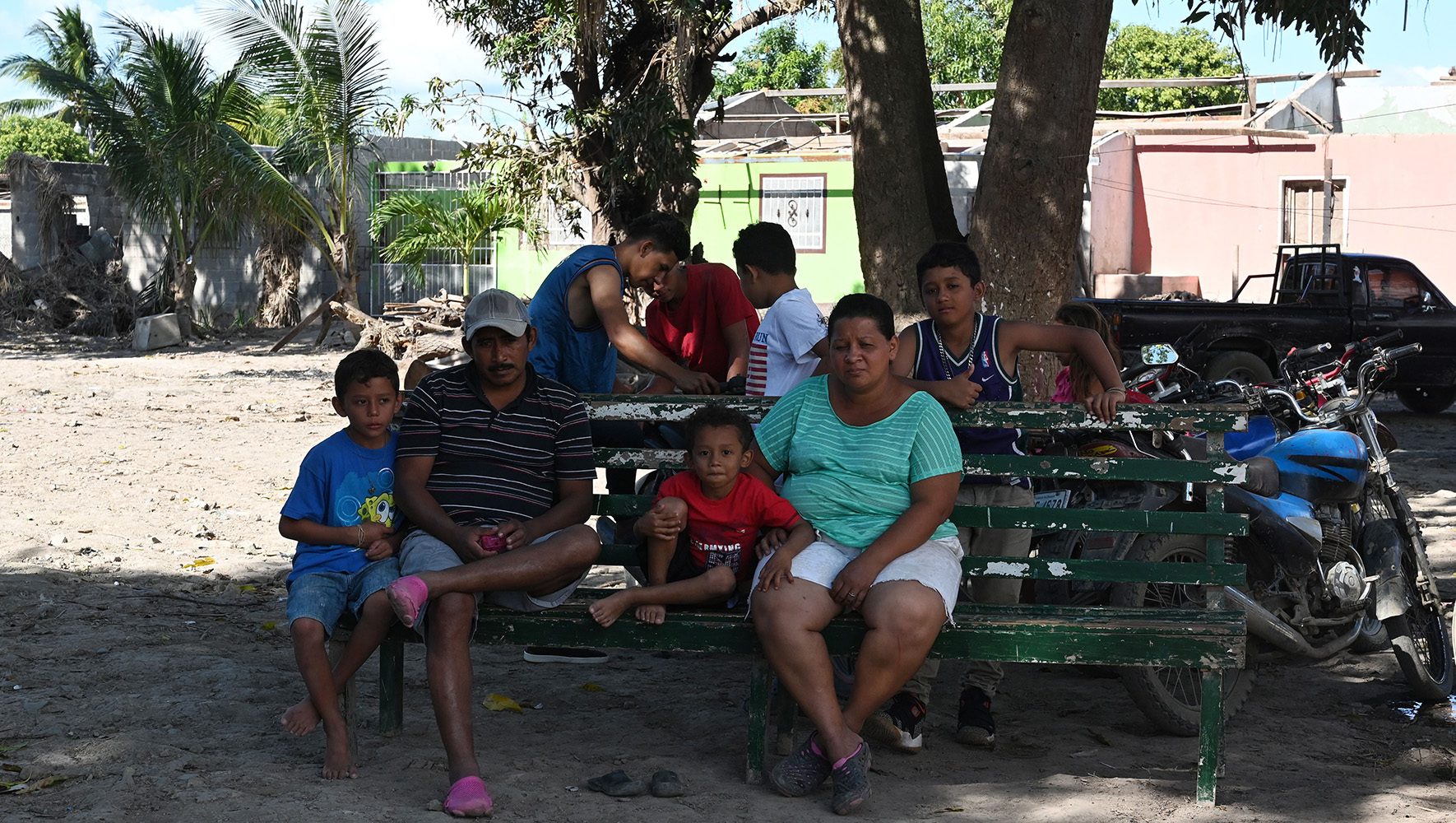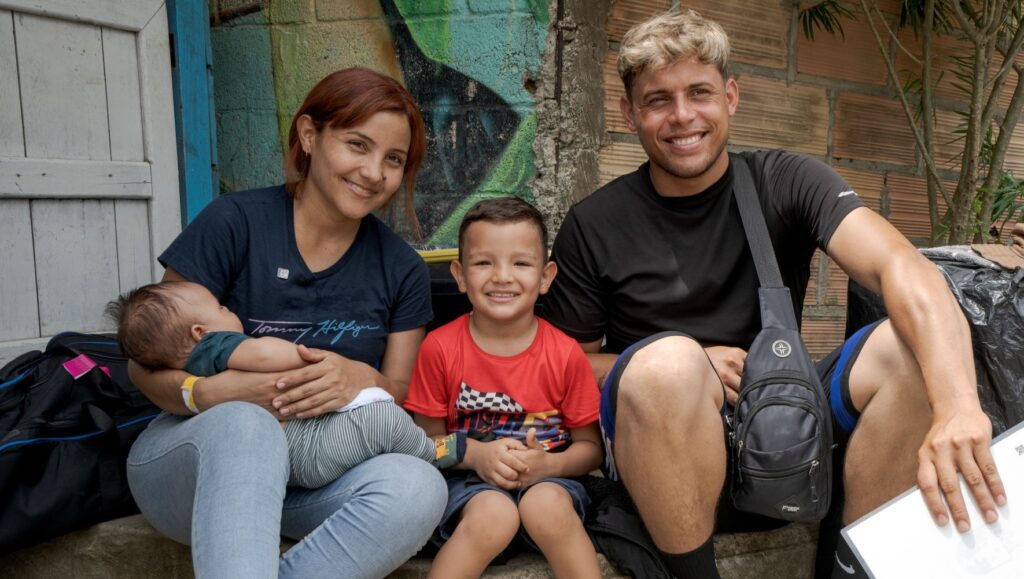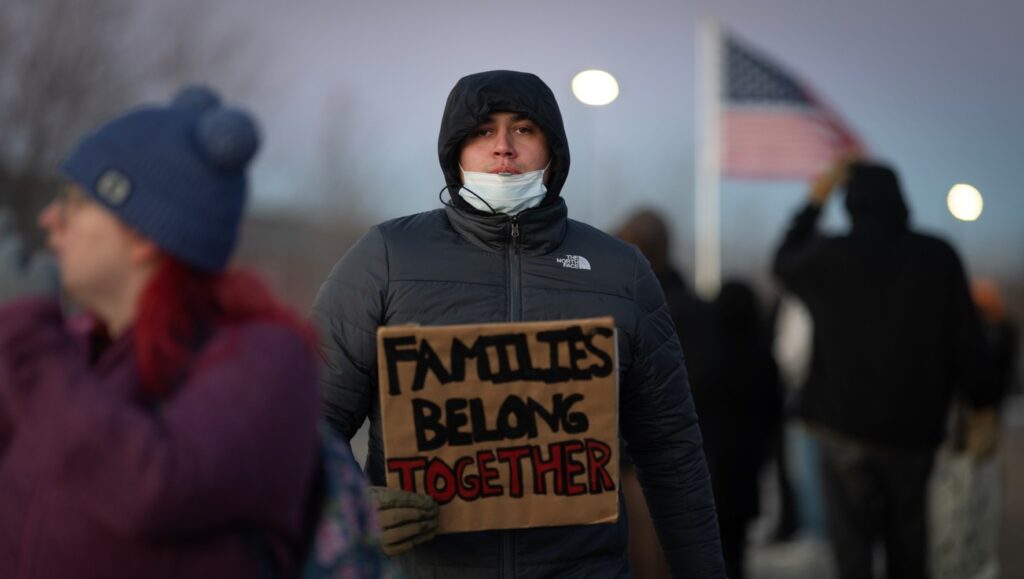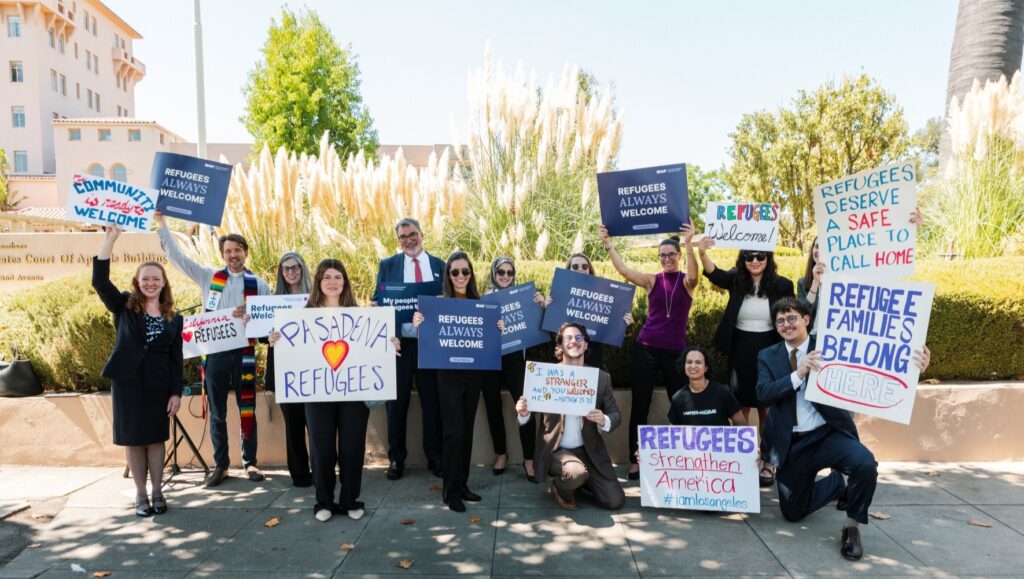
Honduras was hit hard by both COVID-19 and the 2020 Eta and Iota hurricanes. On a recent trip to the country to see how HIAS could expand its Latin American presence to help, HIAS’ new director for its Emergency and Humanitarian program, Carrie Taneyhill, saw how communities were also suffering from unemployment and gang violence.
For Taneyhill, the challenges she saw in places like Chamelechon and Choloma were clear and emphasized by the sound of nearby gunfire.
“There is a lot of room for HIAS to be inventive and we are well-positioned to help,” she said.
With an established presence on the ground and working in partnership with local organizations, HIAS is hoping to use its expertise to enhance local organizations’ efforts to reduce gender-based violence and to set up trauma healing and support programs. Taneyhill visited several community outreach centers which have been partially funded by HIAS’ local partner FUNADEH through USAID.
Right now, many of these outreach centers have one or two “community ambassadors” who connect on a regular basis directly with community members. HIAS would expand this project, broadening the role of community leaders to include skills of case managers.
The centers are successful and are seen within the communities as safe spaces and a destination to find many different kinds of assistance. Some of the offerings already available at centers include a beauty school, tutoring programs, a gym, arts and crafts, business training, and computer literacy classes. Keeping boys and young men off the streets is a priority, and sometimes even video games are the answer.
“Kids are kids in any country,” Taneyhill said. “A Playstation can be a violence prevention tool.”
Many of the communities have several concurrent and protracted humanitarian emergencies they must deal with: the effects of the pandemic on health and economic opportunity; the destruction caused by the hurricanes; unemployment; and gang violence. To compound matters, a number of the people living in the communities are still internally displaced because of the natural disasters.
Yessy Castillo, the coordinator for the Morales III Outreach Center in Chamelecon, said her center was able to help about one thousand people after the hurricanes by providing food, clothing, and household items, and she was proud of how the center functioned as a tool for response.
“We became an arm for helping others,” Castillo said.
The return of attempted emigrants is one of the more delicate situations for ambassadors to work with. It is not unusual for financially stable people in Honduras to sell everything to move to the United States. The average cost of the journey is $14,000 but, even fully paid, most people fail and don’t even make it to Mexico. Many are psychologically traumatized, robbed, and assaulted and return in need of mental health support and other assistance to start over again.
Community outreach workers want to help those migrants who have come back, but they also feel the need to explain the risks to those who are planning to leave. Some migrate because of the economy, yet others because of the violence, and while the ambassadors understand their right to migrate, the real life risks are serious.
Taneyhill agreed that as a result of the changes in the economy because of COVID-19, such as the shutting down of micro enterprises, people lose hope and feel they have to leave. But migrating is not a positive adventure.
“The stories that they come back with are pretty horrible,” she said.
As the effects of the pandemic wane and with the right support of organizations like FUNADEH, locals can restart micro enterprises and improve the economy. In that context, families and communities will be strengthened, violence prevention programs can take hold, and the risks of migration might be better explained. Working with FUNADEH, with its deep local roots, HIAS has felt really connected to the needs of the community, Taneyhill explains.
“This would be a real opportunity to improve communities and empower people to build upon their own resilience,” Taneyhill said.



